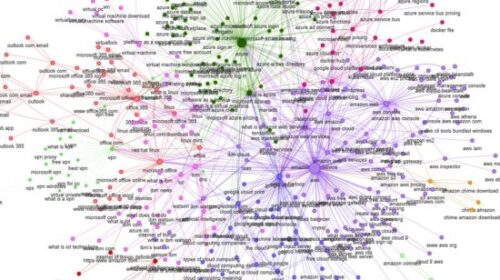Why Copying Campaigns Between Search Engines Misses Opportunities
Are you making the most of the unique characteristics of each search engine? Contributor John Cosley explains paid search opportunities you may be missing.
Each month, users conduct more than 100 billion searches on search engines globally. And every day, a portion of the searches they perform involve queries that have never been made before.
Those facts are widely cited, but fewer marketers are aware that at least a third of all searches conducted are from query terms unique to each search engine, such as Bing or Google. (According to Microsoft’s, my employer’s, internal research.)
Why All These Unique Queries?
- There are more than 7.3 billion people on this planet — each one of them unique. While those that are online often have popular searches, such as “Facebook” or “Craigslist,” in common, they also have millions of ways to uniquely express their needs to search engines. For example, if we both had a water pipe burst, you may search for “plumber” while I may search for “fix water leak.”
- Custom comScore research from December 2015 indicates that 60 million US users exclusively use Bing. Since these people have certain demographic and psychographic characteristics, according to our data, some use different terms from those who use Google or other engines.
- Other people who use Bing (and our partner networks) may also use Google, but our research suggests that users are in a unique mindset when engaging with a certain search engine. So it follows that they may use unique search terms in keeping with their mindset. Interestingly, our 2013 research suggests that people frequently use a single search engine when completing a particular task. It’s only when they are changing tasks or environments that they consider changing search engines.
- A reflection of these unique queries can be seen in each search engine’s auto-suggestion of query terms. Bing and Google will algorithmically make different suggestions as a result of the types of queries popular on their platform. For example, many warm-weather-seeking users will look for a getaway to the Caribbean (on a budget, of course). You can see from the screenshot below that when a user starts to enter the query “cheap caribbean,” Bing suggests “cheap caribbean vacation packages,” which is a very frequently selected search on Bing but is much less frequently searched on Google, according to our proprietary research.
 100vw, 721px” data-lazy-src=”https://searchengineland.com/wp-content/seloads/2016/02/SEL_BingUsers_1.png” /></p>
<h2>Exclusive Marketplaces</h2>
<p>There is a common misconception that Google sees all queries and other search engines are just a subset. However, when we aggregate our large set of search data, we see that 33 percent of the queries found on the Bing Network are actually not found or infrequently found on Google. It’s likely that Google also records a large number of queries not seen on Bing.</p>
<p>Though many search marketers simply copy their campaigns from one search engine to another, this unique query data shows they may be missing a big opportunity.</p>
<p>Our analysis has found that many of these unique queries represent significant consumer purchase intent. In fact, we’ve found that they drive around 25 percent of the ad clicks delivered on the Bing Network.</p>
<p>This translates to tens of millions of clicks on Bing that savvy marketers are able to capitalize on — but it means that each engine requires a unique approach to campaign optimization. If advertisers are either not using Bing or assume that a mirror image of their campaigns on Google would optimize their results on Bing (or vice versa), they are missing out on these opportunities.</p>
<p>In the US, the kind of clicks found almost exclusively on Bing are not from “head terms,” i.e., common terms between search engines, like “home depot” or “flowers.”</p>
<p>Instead, the terms we see only on Bing are farther out in the tail. They are often four-plus query terms long and can range from being very specific (“Oakley sunglasses cheap %off free shipping”) to very local (“Deep Creek Maryland weekend getaways”) to very descriptive (“swim discount pool supplies equipment”).</p>
<p>How does this translate to your industry? What percentage of paid clicks are delivered to advertisers based on these exclusive Bing queries that are infrequently found or not found on Google? The chart below shows the breakdown by industry.</p>
<p><img class=)
A Unique Advantage For Marketers
What does this mean for marketers? First and foremost, it gives you incremental opportunities that are well worth your time and effort. For example, if your campaign relies heavily on exact match/match-types, you are likely missing out.
With this in mind, how do search marketers make the most of each engine’s unique clicks?
- Regularly mine the Search Query reports, and add in additional keywords to capture new long-tail queries.
- The queries change by the month, of course, which means if you rely on a static approach, you’ll only be giving your competitors an edge, so capitalize on the unique search volume by expanding your coverage of phrase match and broad/broad modified keywords.
- When evaluating your long-tail queries, break them apart into smaller (two to four) keyword combinations to evaluate what you can add as both positive and negative keywords.
If you were thinking that there’s not much difference between the search engine audiences, think again. As with each individual person on our planet, a search engine’s unique qualities are what make the difference.





